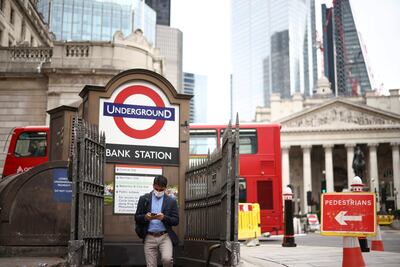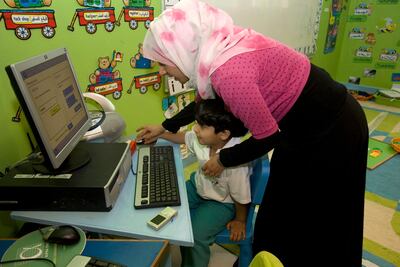Follow the latest updates on the Covid-19 pandemic here
Travellers arriving in Abu Dhabi from abroad will now have to quarantine for longer.
The updated rules, announced on Sunday, will affect all citizens and residents, regardless of their vaccination status.
But for how long must people isolate, and when will children returning from overseas be able to return to school?
Here's the latest:
Vaccinated travellers arriving from non-green list countries
Immunised Emirati citizens and residents flying into Abu Dhabi from countries not on the emirate’s green list will now quarantine for seven days instead of five.
They must also take a PCR test on arrival, and again on day 6.
The rule applies to vaccinated UAE citizens and residents who received their second dose at least 28 days earlier, as documented on their Al Hosn app.
Unvaccinated arrivals from non-green list countries
Unvaccinated citizens and residents arriving from countries not on the green list will have to quarantine for 12 days, up from 10 before.
They also must take a PCR test on arrival and another on day 11.

Travelling with unvaccinated children
Parents travelling with unvaccinated children who are returning to Abu Dhabi after the summer holidays must plan for a quarantine period before they return to school.
Under recent rules, all school staff and pupils aged 16 and over must have had both doses of a Covid-19 vaccine by the start of the new school term.
Private schools in Abu Dhabi are currently waiting for updates from the authorities on testing policies and protocols for children and staff who have travelled outside the Emirates during the summer holidays.
Last year, all pupils aged over 12 had to be tested for Covid-19 before they could return to in-person classes in Abu Dhabi.
And parents were advised to plan their holidays to account for a quarantine period for their children before they could attend school.
They were asked to return at least two weeks prior to the beginning of the new academic year, to meet any requirements of quarantine or Covid-19 required by the UAE Government.

Anyone arriving from green-list countries
All arrivals from green-list destinations are already exempt from quarantine.
But they must take a PCR test on arrival, isolating until the result comes through, and another on day 6. Day 1 is the date of arrival.
Tourists arriving from non-green list countries
Tourists arriving from countries not on the green list must quarantine for 10 days, regardless of whether or not they have been immunised.
Anyone wishing to enter Abu Dhabi from the border with Dubai must provide a negative PCR test result issued within 48 hours or a negative laser DPI blood test result issued within 24 hours.
Any portion of the 10 days spent elsewhere in the UAE, such as Dubai, will be deducted from the period.
For example, if they have spent five days elsewhere in the UAE, they will be required to finish the remaining five days quarantine in Abu Dhabi and take a PCR test on day 8. The quarantine will be monitored by a tracking wristband.
Where you can quarantine
Most travellers arriving from non-green list countries can quarantine at home, while being monitored by a tracking wristband.
But anyone arriving from a country UAE authorities deem to be high-risk will be required to complete the quarantine in accommodation provided by the government.
Rules for arriving in Abu Dhabi and travelling outside the emirate
People must undergo a free, mandatory PCR test at the airport and inform authorities they are travelling outside the emirate to be exempted from quarantine, Abu Dhabi Airport rules state.
Those concerned can travel to another emirate only by official airport taxi, Etihad chauffeur, or Etihad express coach and they must head to their final destination.
If people cannot secure approved transportation to a final destination outside of Abu Dhabi, they must follow the emirate's entry and quarantine rules.



















